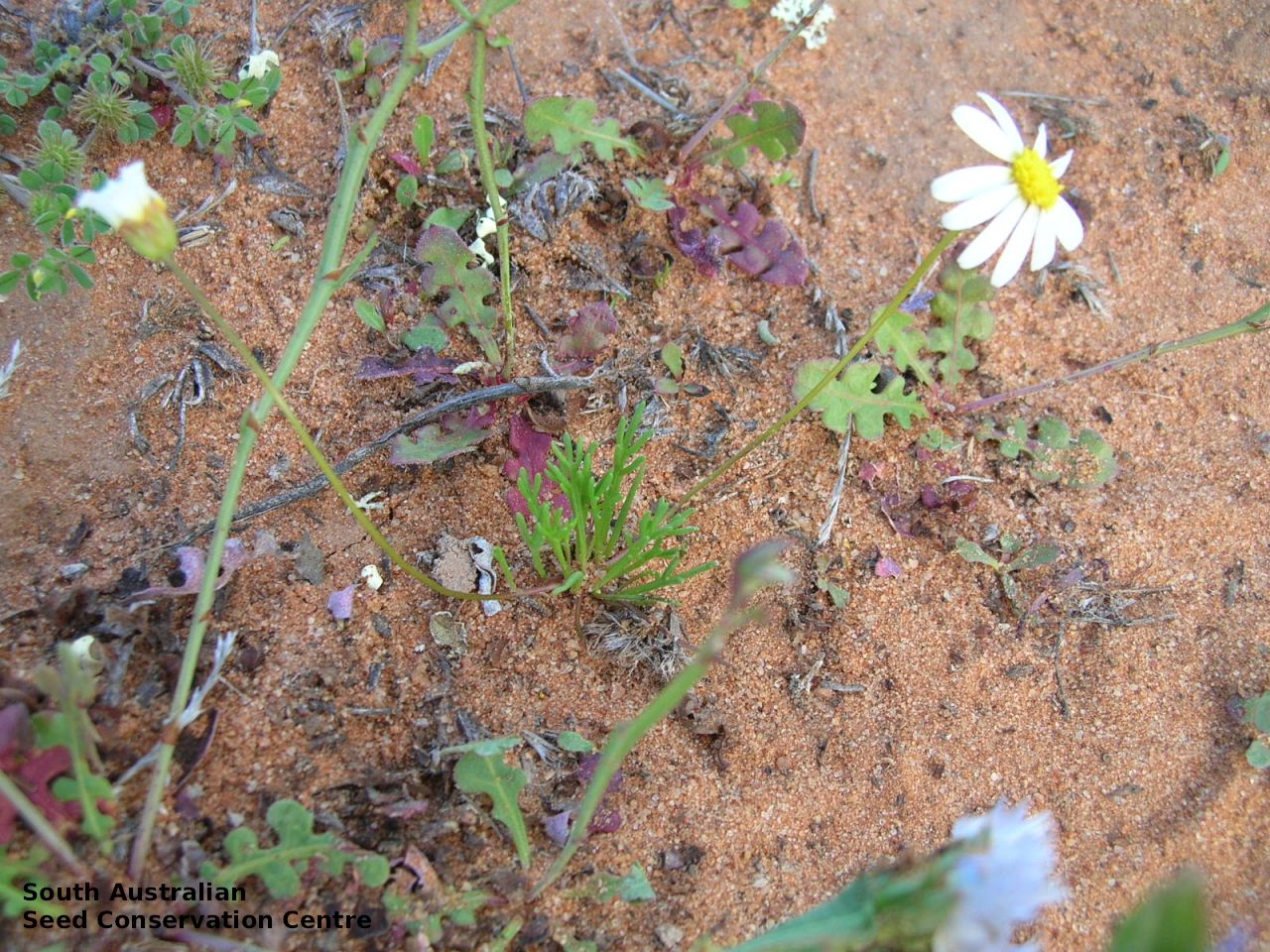
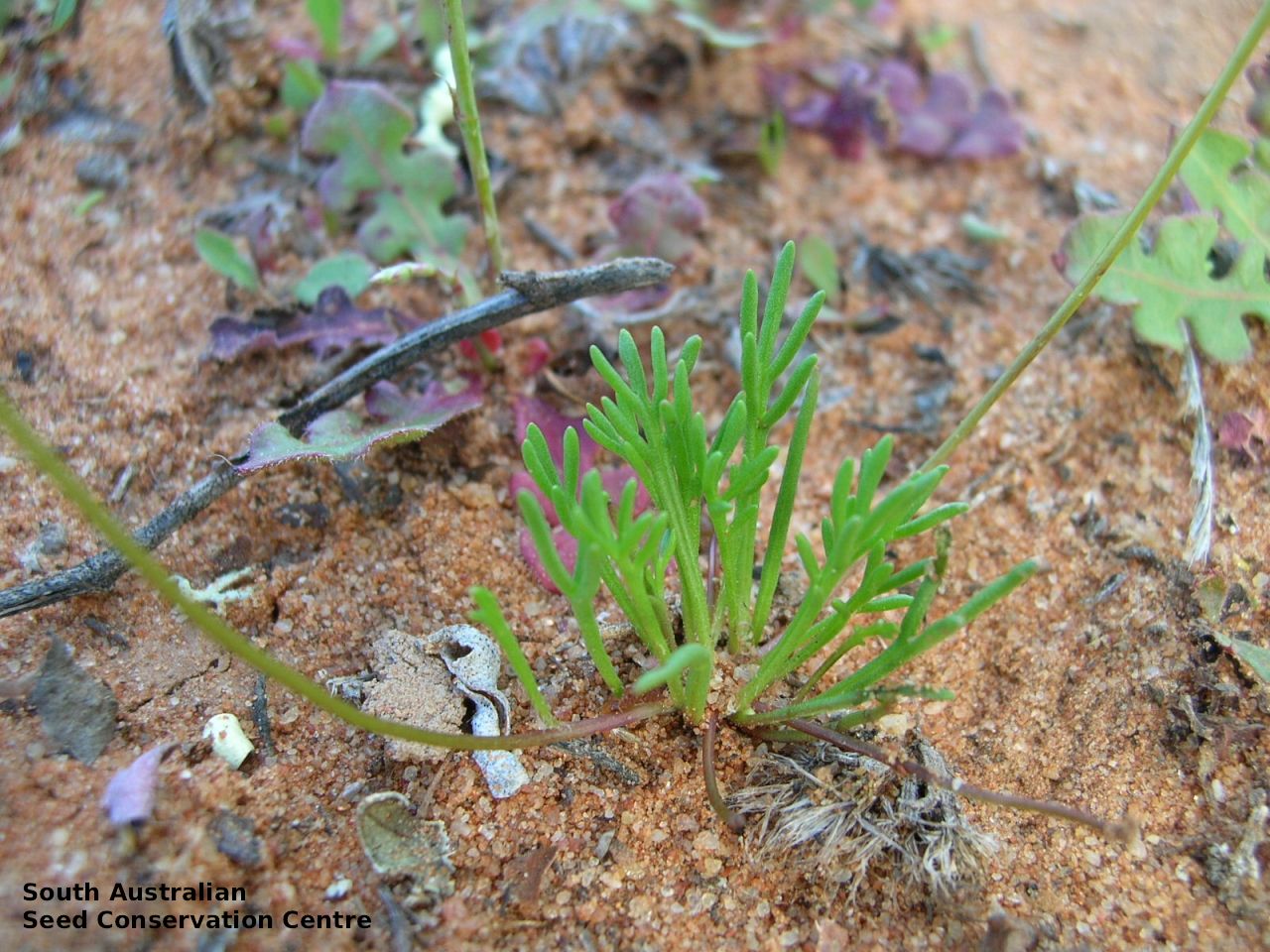
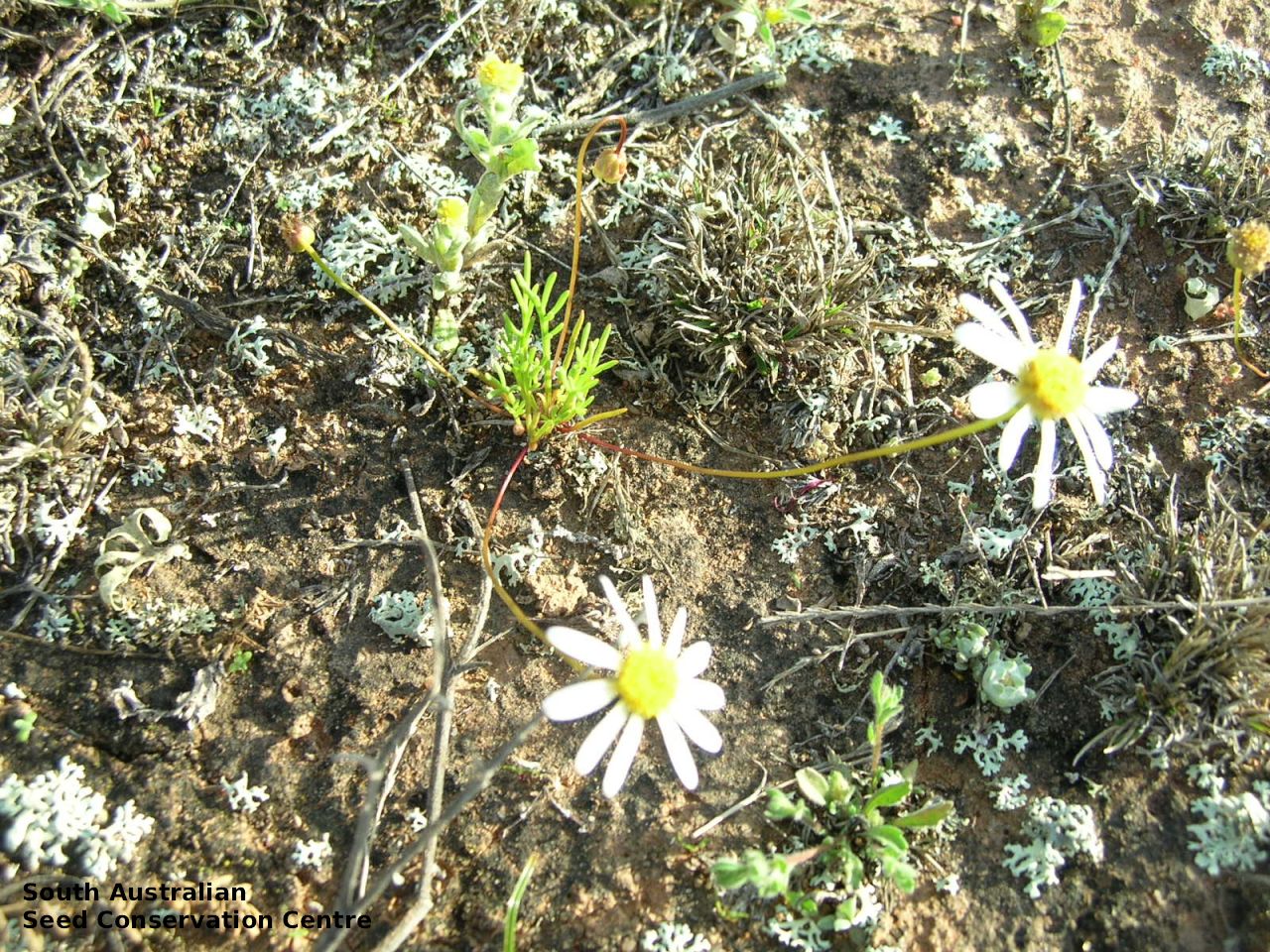
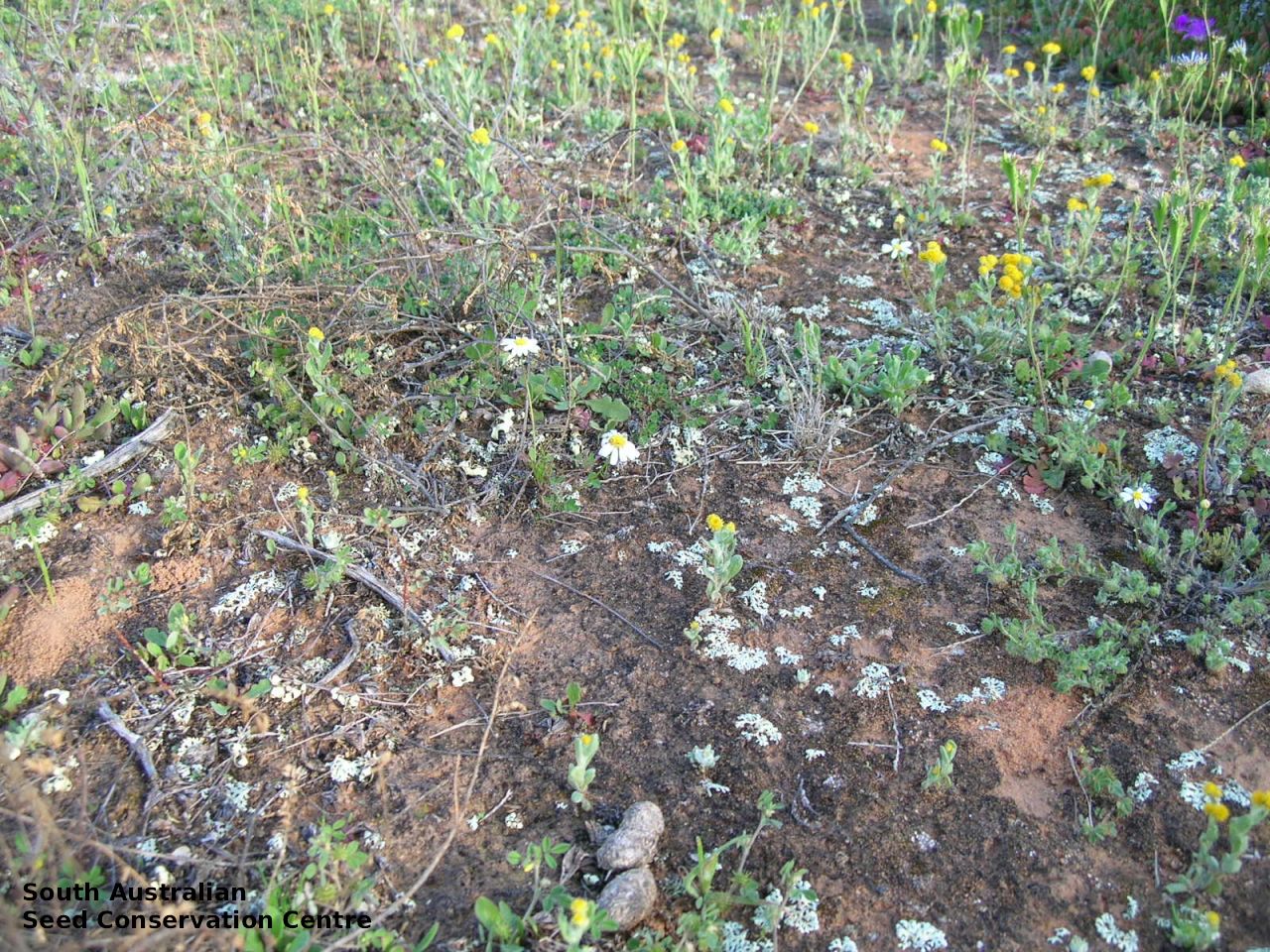



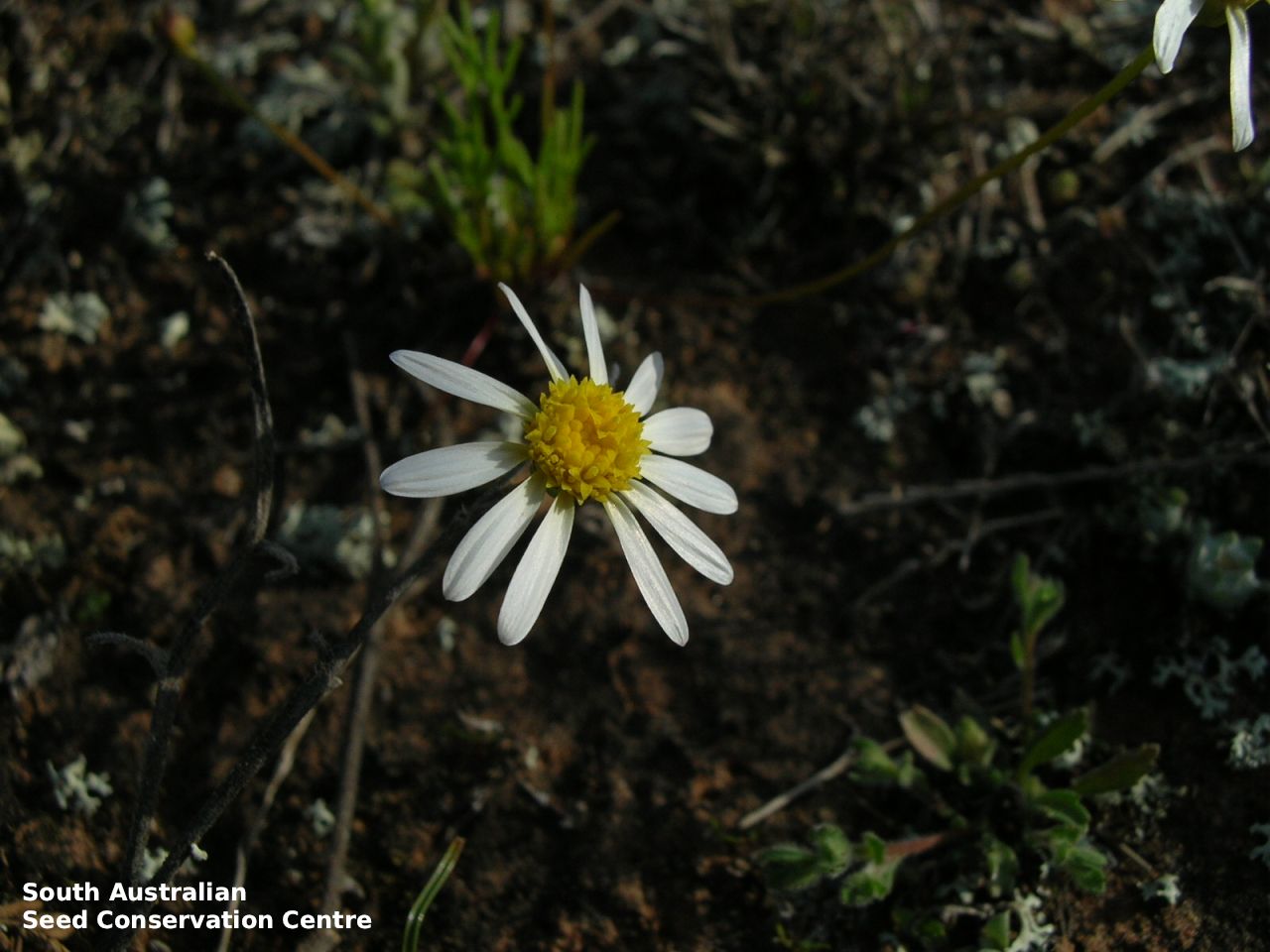


Etymology
Brachyscome from the Greek 'brachys' meaning short and 'kome' meaning hair, referring to the tuft of short bristles or hairs of the pappus. Dichromosomatic meaning having two chromosomes. Alba from Latin meaning white, referring to the white ray corolla of this species.
Distribution and status
Found on the flood-plains of the Murray River north of Renmark in South Australia, growing on dry creekbeds and claypans. Also found in New South Wales. Native. Rare in South Australia. Rare in New South Wales.
Herbarium region: Murray
NRM region: South Australian Murray-Darling Basin
AVH map: SA distribution map (external link)
Plant description
Erect annual herb to 25 cm high, glabrous. Leaves basal or also on lower part of stem, pinnatisect with 5–9 linear obtuse segments, to 8 cm long and 12 mm wide, glabrous. Single white daisy on a long naked stalk. Flowering between June and September. Brachyscome dichromosomatica var. alba differ from B. dichromosomatica var. dichromosomatica by having white ray corolla (pale blue or mauve ray corolla, at least on the under surface in B. dichromosomatica var. dichromosomatica). Fruits are dense brown daisy-heads. Seeds are pale brown, wedge-shape seed to 5 mm long, margins with silky glandular hairs along the margin, faces smooth. Seed embryo type is spatulate fully developed.
Seed collection and propagation
Collect seeds between August and December. Pick heads that are maturing, drying off, with brown seeds. Place the seed-heads in a tray and leave to dry for a week. Then gently rub the heads with a rubber bung to dislodge the seeds. Use a sieve to separate the unwanted material. Store the seeds with a desiccant such as dried silica beads or dry rice, in an air tight container in a cool and dry place.